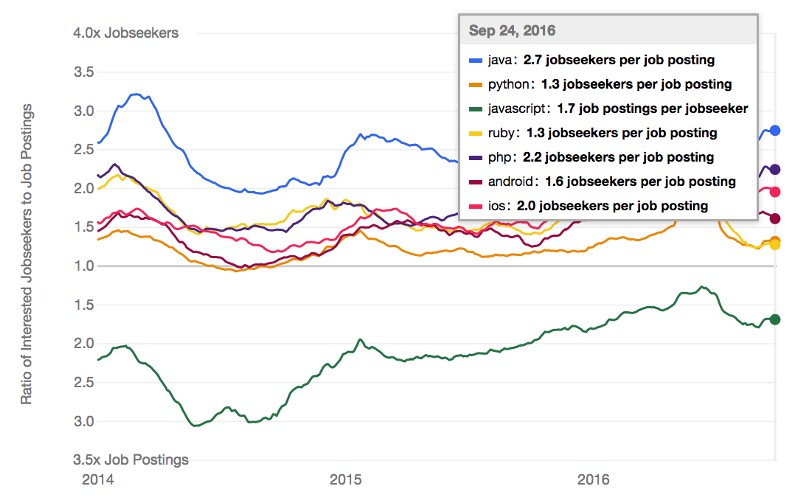Choosing your first programming language can feel overwhelming. With so many options, how do you decide which one is the best starting point for your coding journey? This article will guide you through the factors to consider when selecting your first language, and argue why JavaScript might be the ideal choice for beginners in today’s market.
Factors to Consider When Choosing a First Language
Before diving into specific languages, let’s outline key factors to consider:
Job Market Demand
Learning a language in high demand increases your chances of landing a job. Research current job postings and industry trends to gauge which languages employers are actively seeking.
Long-Term Prospects
The tech landscape evolves rapidly. Consider a language with a strong community, ongoing development, and adaptability to future trends. This ensures your skills remain relevant for years to come.
Ease of Learning
Starting with a beginner-friendly language can boost your confidence and motivation. Look for languages with clear syntax, ample learning resources, and supportive communities.
Project Potential
Building projects is crucial for practical learning and portfolio development. Choose a language that allows you to create interesting projects early on, keeping you engaged and showcasing your skills.
Why JavaScript Might Be the Best Choice for Beginners
While many languages fit the bill, JavaScript stands out as an excellent choice for several reasons:
Ubiquitous Presence in Web Development
JavaScript powers the interactive elements of the web. With the web’s ever-growing importance, JavaScript skills are essential for front-end development and increasingly relevant for back-end development, game development, and even the Internet of Things.
JavaScript’s dominance in GitHub projects reflects its overall popularity.
High Demand and Low Supply of Developers
The demand for JavaScript developers consistently outpaces the supply, creating a favorable job market for those with these skills.
 Image
Image
Rapid Growth and Ecosystem
JavaScript boasts a vibrant and rapidly expanding ecosystem, fueled by significant investments from tech giants like Google, Microsoft, and Facebook. This ensures continuous improvement and a wealth of resources for learners.
Beginner-Friendliness and Project Versatility
JavaScript is relatively easy to learn compared to lower-level languages like C or Java. Moreover, its browser-based nature allows for building and sharing projects instantly, providing immediate gratification and fostering motivation.
Example of a simple game built with JavaScript: Conway’s Game of Life.
Another JavaScript project example: a Star Wars-themed Wikipedia Search.
Addressing Common Concerns about JavaScript
Some common concerns about JavaScript include its speed and dynamic typing. However, JavaScript’s performance is comparable to high-performance languages for most applications. While dynamic typing can lead to errors, good coding practices and tools like TypeScript mitigate these risks.
Conclusion: JavaScript as a Strong Foundation
Learning one language well establishes a solid foundation for future learning. JavaScript, with its versatility, strong community, and promising future, offers a compelling starting point for aspiring programmers. While other languages have their strengths, JavaScript’s unique advantages make it an ideal first language for many. Mastering JavaScript opens doors to a wide range of career opportunities and empowers you to shape the future of the web.